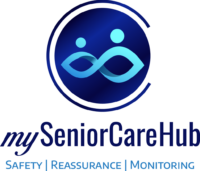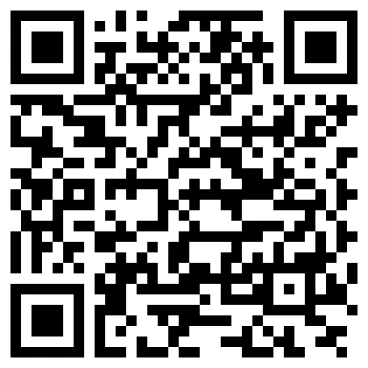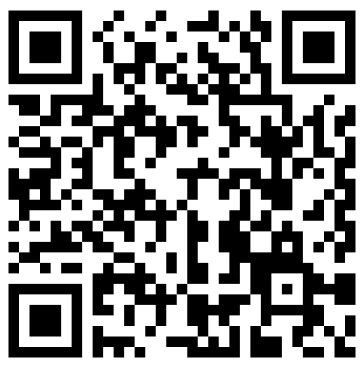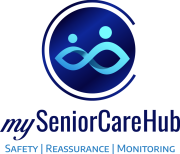Can Technology Help You Care for Loved Ones from Afar?
When You Can’t Be There All the Time, Smart Check-Ins Can Help You Care Without Constant Calls
“Is she Okay ?”
“Did she take her meds?”
“Did she wake up feeling okay today?”
These questions run through my mind every single day. But like many people in their 20s or 30s, I also work full-time, live in a different city, and can’t keep calling my grandmother every few hours to check in.
Every missed call from her makes my heart race. Every unanswered text feels like a warning sign.
But here’s the truth: she’s not neglecting me—she’s just tired, busy, or sometimes she doesn’t feel like talking.
And I’m not a bad caregiver. I just can’t be everywhere at once. That’s why I turned to smart daily check-ins—not to replace care, but to support it.
The Silent Struggles of Long-Distance Caregivers
Caring for elderly loved one remotely comes with its emotional weight. You experience anxiety when they don’t respond, guilt when you’re unavailable, and helplessness when something unexpected goes wrong.
Especially with seniors who live alone or are recovering from illness, the early signs of trouble are subtle:
- Skipping meals
- Forgetting to take medication
- Dizziness that’s brushed off
- Sleeping longer than usual
- A missed “Good morning” message
And many times, these warning signs go unnoticed until they become emergencies.
A Personal Story: The Missed Call That Wasn’t Just a Missed Call
My grandmother didn’t answer her phone or reply to my regular morning message two months ago. It was a busy Monday morning at work, but something didn’t feel right.
I asked my neighbour to check in. She found my grandmother lying down, dizzy and weak. She skipped breakfast, forgot her morning meds, and didn’t drink water because she felt “a little off”.
That “little off” was the beginning of a drop in her blood pressure—something that could’ve turned dangerous.
That incident stayed with me. I realised that care needs to be proactive, not reactive.
How Smart Check-Ins Make the Invisible, Visible
That’s when mySeniorCareHub entered my life, a tool that helps bridge this gap without making seniors feel like they’re being watched constantly.
Here’s how it helped:
| Feature | What It Does | Why It Matters |
| Daily Smart Check-Ins | Asks simple wellness questions at set times | Detects mood changes, appetite loss, fatigue |
| Missed Check-In Alerts | Sends notifications if a senior doesn’t respond | Helps spot early signs of dizziness, forgetfulness, or inactivity |
| Vital Sign Tracking | Monitors things like pulse, temperature, or blood pressure (if synced) | Offers real-time health updates |
| Wellness Score | Compiles data into a health score based on trends | Gives an overview of daily well-being without overwhelming the caregiver |
Instead of guessing how she’s doing, I now get a simple, colour-coded wellness update. If something’s off, I know it—without waiting for a call that might never come.
The Medical Importance of Daily Monitoring

Elderly people—especially those living alone—are at higher risk of dehydration, hypotension (low BP), and hypoglycaemia (low blood sugar). These are conditions that don’t always present with loud symptoms. The first sign is often just:
- A skipped meal
- Feeling too tired to move
- A missed check-in
But these “small” moments are medically significant.
| Symptom | What It Might Indicate |
| Missed meal + dizziness | Early signs of low blood sugar or BP |
| No check-in + excessive sleep | Fatigue, depression, or medication side effects |
| Unusual mood during check-in | Cognitive decline, isolation, or infection onset |
Catching these early gives us time to intervene—to send help, adjust a routine, or simply check in at the right moment.
You Don’t Have to Call 5 Times a Day to Be a Good Caregiver
There’s a lot of guilt tied to caregiving from a distance. We worry that using tech means we’re replacing human connection. But in reality, it’s the opposite.
Technology like mySeniorCareHub doesn’t replace love—it supports it.
It gives you the peace of mind that someone is watching over your loved one, even when you’re caught in meetings, stuck in traffic, or on another continent.
Because sometimes, caring doesn’t mean constantly calling.
It means setting up systems that catch the whispers before they become screams.
Final Thought
I still talk to my grandmother every evening. But now, our conversations are less about “How are your ?” and more about “How was the sambar today?” Because I already know she’s okay. The app told me.
If you’re a working caregiver, you’re not failing your loved one. You’re juggling a lot. Let smart check-ins assist you, so you can show up with more calm, more confidence, and more love.









